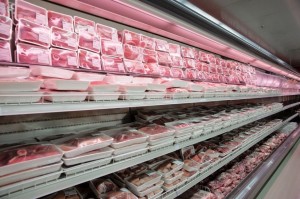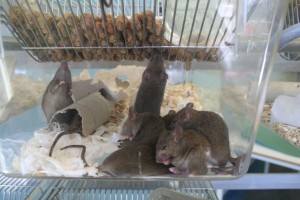Worldlog week 50 – 2014
It was recently again confirmed by a research by think tank Chatham House: eating less meat is needed to stop climate change. Worldwide livestock farming emits more greenhouse gasses than all cars, aircrafts, trains and vessels put together. In order to prevent a catastrophic climate change, we need to reduce our consumption of animal proteins drastically. But the global demand for meat is still growing strongly.
Last week, during a debate on our climate I asked our government to establish a policy for reducing the consumption of meat and dairy products. If everyone in the Netherlands was to abstain from eating meat for one day a week, it would have the same effect as if we would take one million cars off the road. Click here for more information.
At this moment, the Netherlands, as an exporting country, is working hard on forcing its meat and dairy products on emerging economies, while the Netherlands has great knowledge to help countries to withstand floods. We should rather export climate solutions than climate problems!
Previously adopted motions to ban some harmful types of agrotoxics have not been carried out until now. For that reason, the Party for the Animals presented an action plan this week to take those toxics off the market. A petition asking for this has meanwhile been signed by more than 62,000 people. The government has promised to look at it again. Let’s hope they will soon take measures.
Good news! With new year’s eve coming soon, the issue of fireworks is very topical again. Already 20 municipalities have said to make fireworks free zones in the area of nursing homes and places where animals are kept among other locations. The Party for the Animals continues to support the ban on fireworks for private use.
Fireworks is not the only environmental harmful festive tradition in the Netherlands. This week we have called the government to actively discourage sending up balloons. The State Secretary said to be willing to do so. Balloons and ribbons end up as litter in the environment after they have been send up, contributing to the plastic soup in oceans and they are seen as food by animals.
I also asked parliamentary questions about the differences in hunting policies between the provinces. It’s arranged differently in each of the provinces, making the use of animal-unfriendly hunting methods possible in some of them. I have asked for more uniform conservation measures in the new Nature Law, starting on the 1st of January 2015.
Last year, 450,000 test animals were sacrificed for genetic engineering, an increase of 12.7 per cent in comparison to 2012. In total 1.1 million animals were killed in 2013. Much too many! That’s why we called for a ban on the genetic modification of animals. This is necessary to cut back the number of animal tests. Scientists have indicated that 80% of the animal tests fail to meet the basic conditions for good scientific research. Al these tests should be banned as soon as possible!
Until soon! Greetings, Marianne


